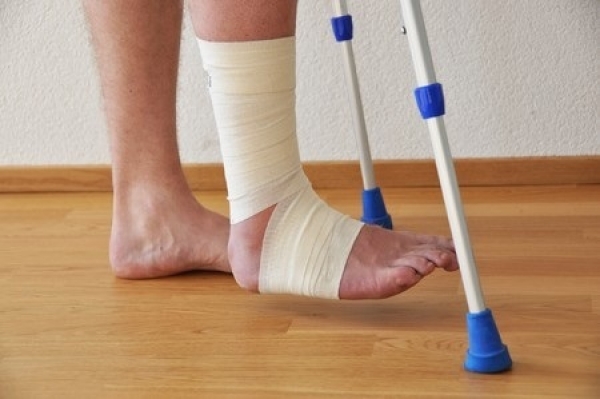Connect With Us
Blogs

Foot Surgery Tips (2)
At Superior Foot & Ankle Care Center we are committed to helping patients obtain relief from foot and ankle disorders using the least invasive methods possible. Sometimes, however, when conservative methods fail to give good results or a condition has progressed to a certain point, surgery is the best treatment option. Whether your surgery is to correct a bunion or help with flat feet, plantar fasciitis or another podiatric condition, what happens after the surgery is critical to completing the healing process. Below are some areas you should focus on if you are planning or have recently had podiatric surgery:
Plan Ahead—our feet are so crucial to daily living and yet we often take them for granted. If you will be unable to walk, even for a short period of time, you will need to put certain things into place prior to surgery:
- See that the area where you will be recovering has everything in easy reach—T.V. remote, books, water, phone, etc. If you sleep upstairs, you may need to set up a temporary bedroom on your main floor.
- Accept all offers of help for meals, running errands or caring for children.
- Clear your calendar of work and other appointments and obligations. Regardless of mobility, you will need rest immediately after surgery.
Wound Care—one of the most critical aspects of surgical recovery is preventing an infection from developing. Be sure you understand and follow all your foot doctor’s instructions for keeping surgical wounds clean. If you notice any signs of infection—warmth at the site of the surgery, redness or red streaks around the wound or fever—contact our podiatrists, Dr. Victoria Foley or Dr. Constance Omelas, immediately, even if it is after regular office hours.
Follow Through—don’t be your own foot doctor! Follow all of the podiatrist’s guidelines for your recovery and complete the full course of any physical therapy that is prescribed. Too often patients will discontinue therapy when they are feeling pain-free, but particularly for foot and ankle injuries strengthening of surrounding muscles and ligaments is necessary for full recovery. If you have any questions concerning post-operative care instructions or symptoms you experience after surgery don’t hesitate to contact our Long Beach office by calling: 562-420-9800.
It’s a fact, 75% of all people will experience a serious foot problem at some point during their life. In many cases, whether due to injury, disease, a foot or toe deformity or other condition, surgery may become necessary to ensure a fully mobile and active lifestyle for the patient. At Superior Foot & Ankle Care Center we try to take the mystery out of surgery by providing our patients with as much information up front as possible. Here are some of the key areas you need to know about before you have surgery:
The Procedure—our podiatrists, Dr. Victoria Foley and Dr. Constance Omelas will take the time to explain your surgery from start to finish. We know that you’ll want to find out if the surgery will be done in the office or a surgical center and whether it’s outpatient or if you’ll require an overnight stay. Most often patients will need someone to drive them home after the procedure. Other concerns include the type of anesthesia that will be used and how long the procedure will take to complete.
The Recovery—questions you’ll want to ask include: how much pain will I be in and what measures will be available to minimize the discomfort? How long before I can bear weight, walk, drive, resume normal activities? Will I need to schedule physical therapy or other appointments following the surgery?
Preparing Your Home—depending on the type of surgery and the recovery you may need some assistance at home initially. You may also need to make some modifications: if your bedroom is on the second floor consider temporarily relocating to the lower level. If you will have a knee scooter, crutches or other assistive devices you will need a clear pathway to the bathroom, kitchen and other areas that are essential to get to. Determine what items (laptop, medications, water, TV remote, etc.) you’ll want within reach and set up an accessible bedside table to hold these items.
Setting up Your Calendar—find out how long you’ll be off your feet and schedule work and family life accordingly. If there are appointments that need to be kept or tasks that have to be completed while you recuperate put the right people in place to handle them so you do not have to worry about them. If possible, schedule physical therapy appointments before your surgery and be sure all recurring tasks—grocery shopping, paying bills, etc. are handled before your surgery.
Having the information about what will happen before, during and after your surgery and the opportunity to put plans in place to make the whole situation go smoothly will go a long way to reducing anxiety. If you have any concerns whatsoever, please contact our Long Beach office by calling: 562-420-9800.


